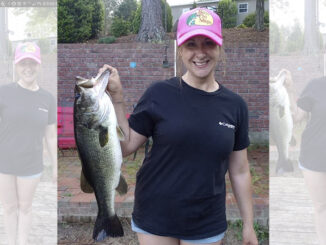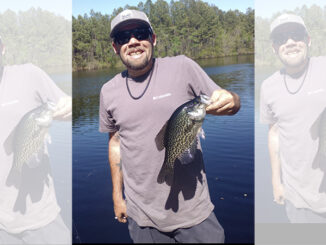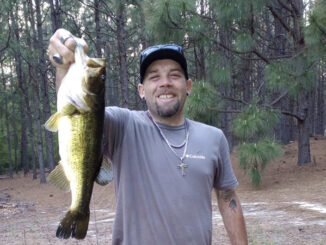
Cobia are big, strong fish, and they often come to the boat with plenty of energy in reserve. Many a cooler, center console, rods and body parts have suffered damage from a freshly-landed cobia.
Planning ahead for where the cobia goes after it is gaffed is smart, but even the best-laid plans go awry at times. The view of the inside of a boat after a gaffed cobia does not make it straight to the box resembles something out of a horror movie.
“Landing cobia is a 3-part process: gaff it, get it in the box, and sit on the lid,” said Capt. Mike Sackman of Beaufort.
Big cobia are notorious for giving up way too early and if a fight with a big fish seems to easy, it probably is. Vaughn has seen firsthand the damage a big cobia can do to a property and people.
“It is not uncommon for a big cobia to come straight to the boat and act as if they are worn out; do not think for even a second that is the case,” he said. “I take my time on a large fish and let it make a few runs and wear down before boating.”
The preferred means of landing a big cobia is with a strong, sharp gaff. A gaffed cobia is easier to control and move to a large cooler of fish box, not to mention few nets could stand up long to a thrashing cobia.
“If you want to keep a cobia for dinner, stick him with the gaff just behind the gill plate and get him in the boat fast,” said Capt. Owen Plair of Beaufort.
Not all cobia are big enough to keep, and gaffed fish are poor candidates for release. In these cases, a lipping device like a Boga Grip is the best tool for the job. Some sort of buoy on the grip is a good idea as well, just in case the cobia proves tough to hold on to.
“Once the Boga is attached, the cobia will usually go into a series of rolls and spins, so hang on, and once the fish is under control, try and remove the hook or simply cut the line close to the fish’s mouth and return it to the water as soon as possible,” Plair said.
Releasing legal fish is not a bad practice, either. Cobia are becoming an increasingly popular gamefish for inshore and offshore anglers alike, causing an increase in the number of fish harvested. Anglers who voluntarily decide to keep fewer fish not only help keep stocks up for future seasons, they also help protect all fishermen from potential government overregulation.




Be the first to comment